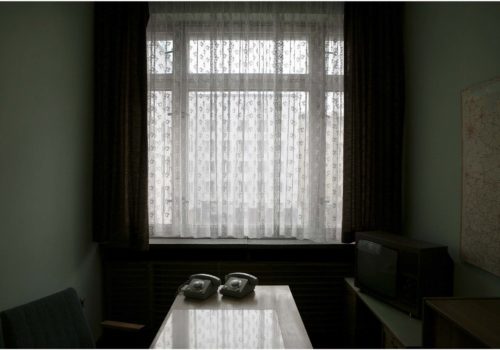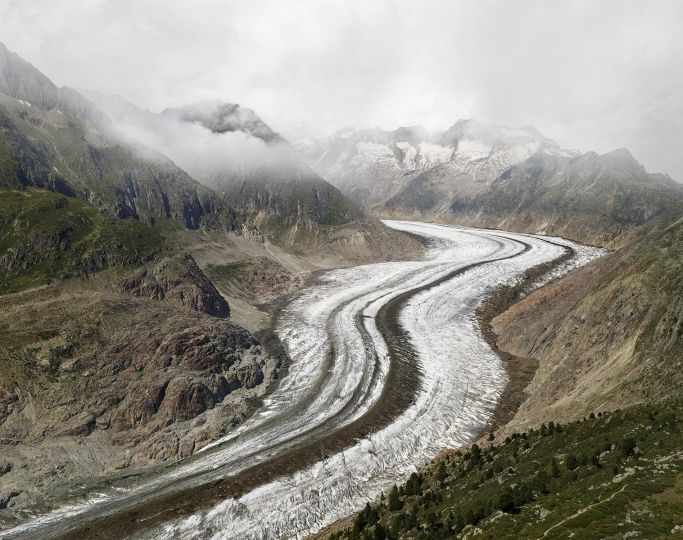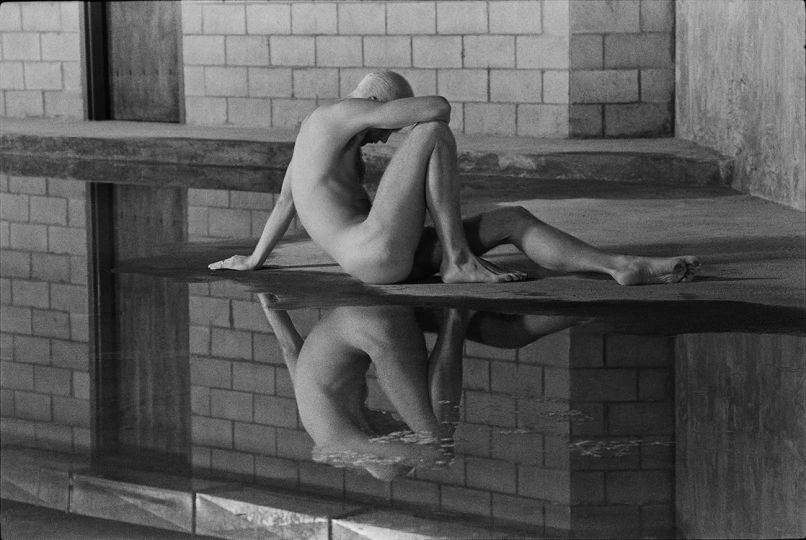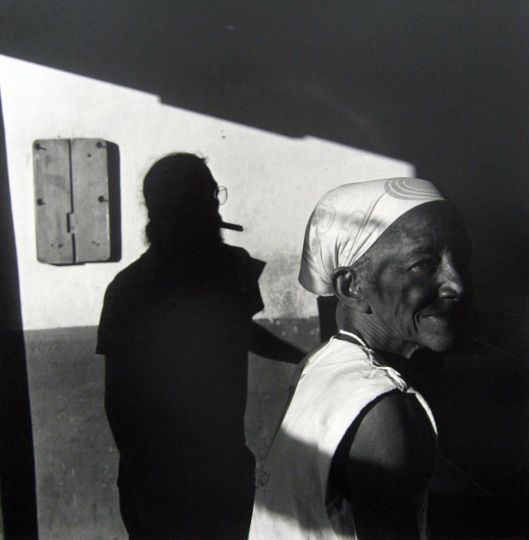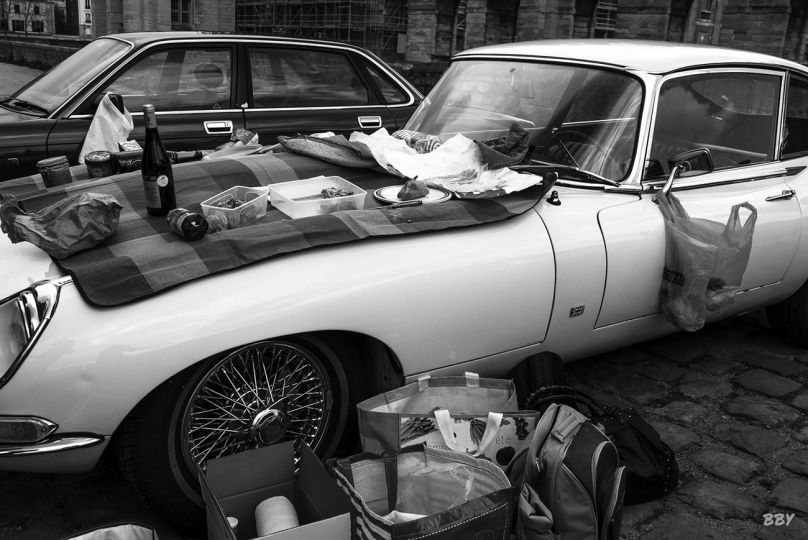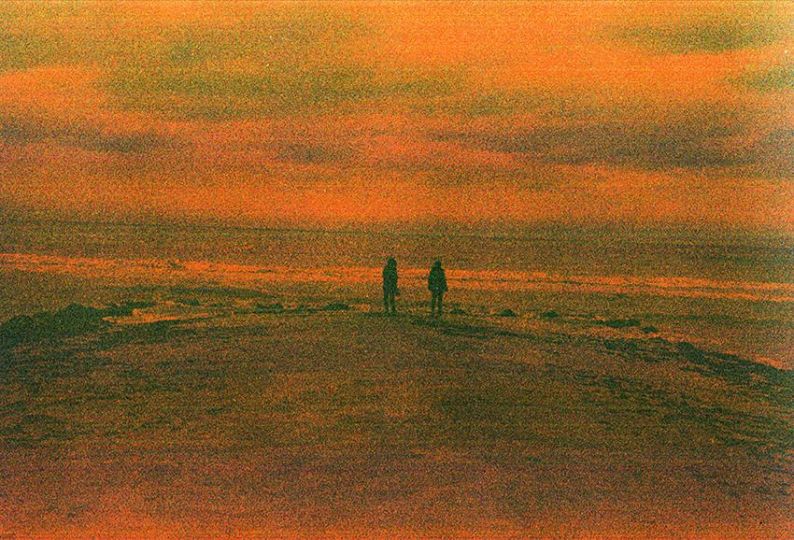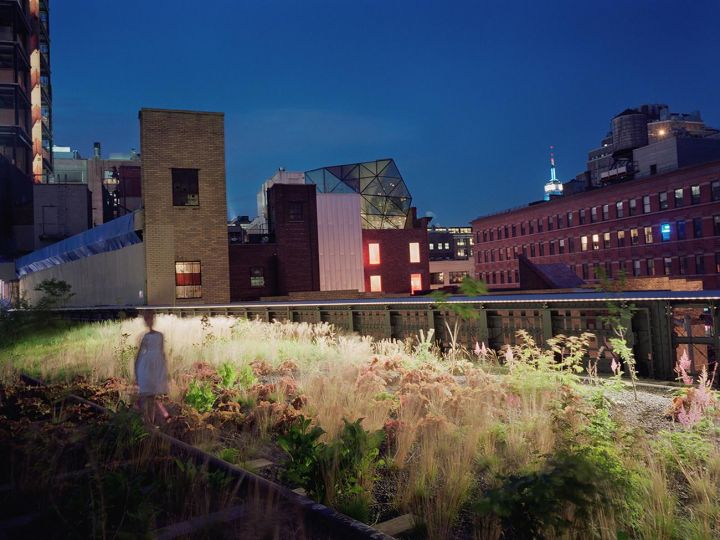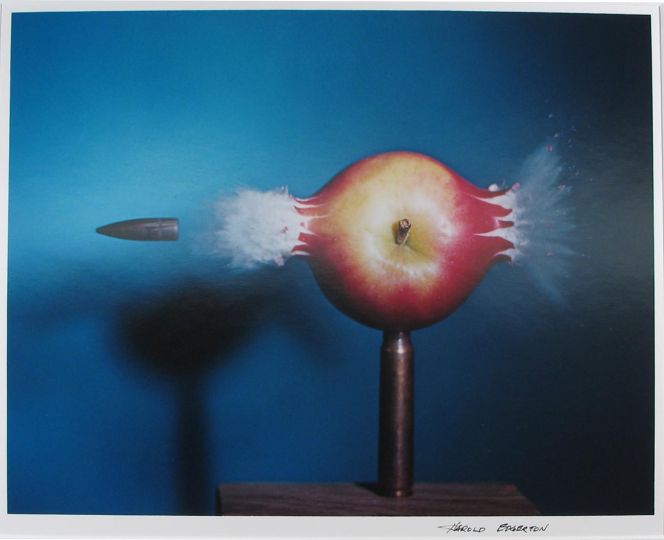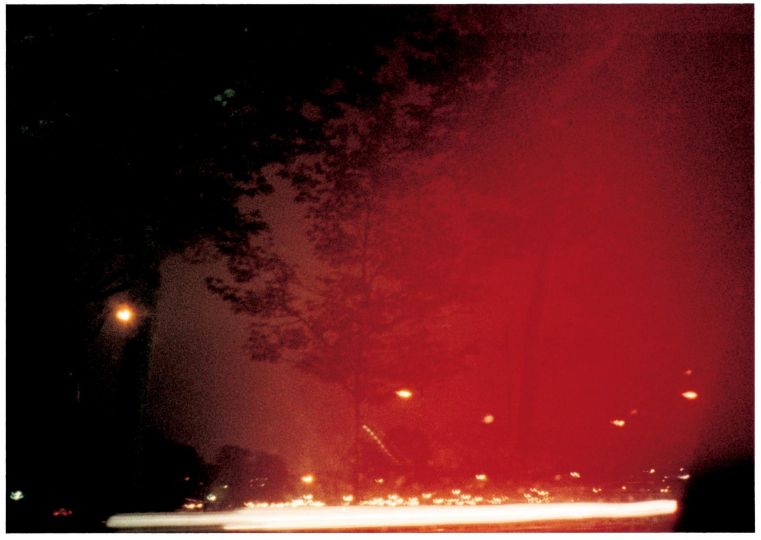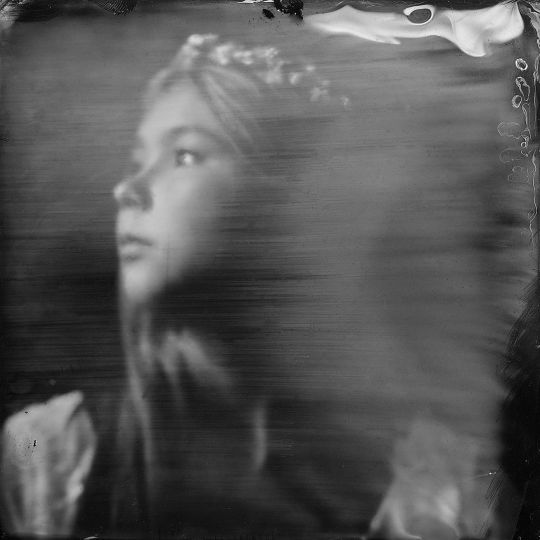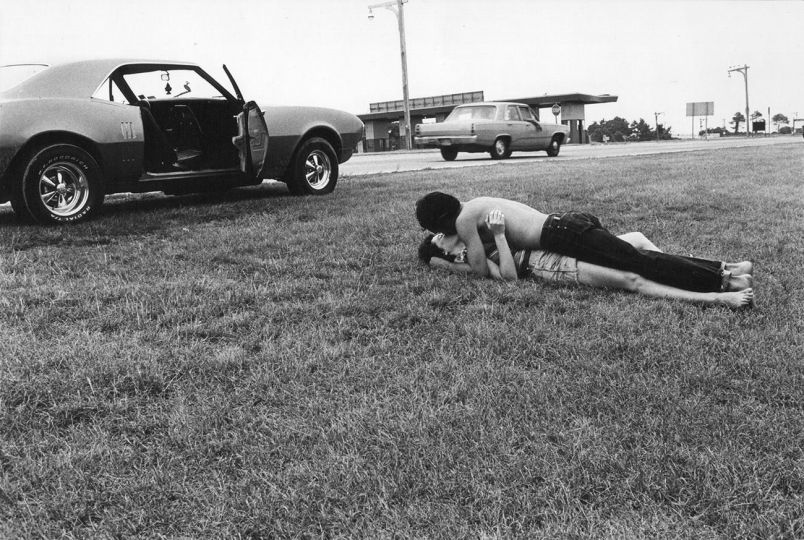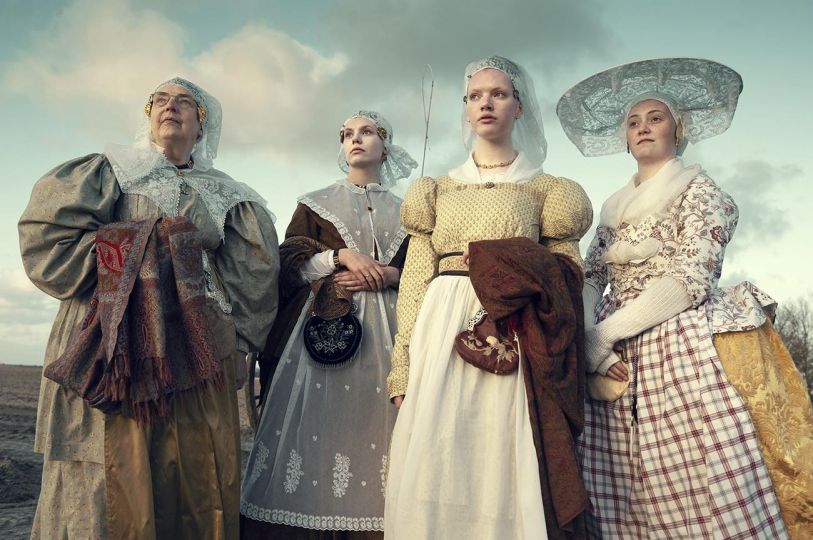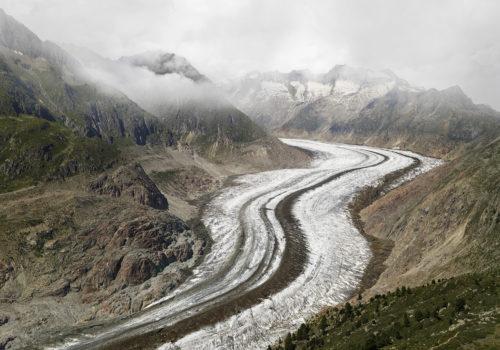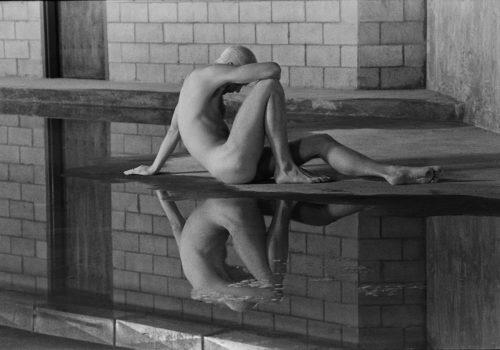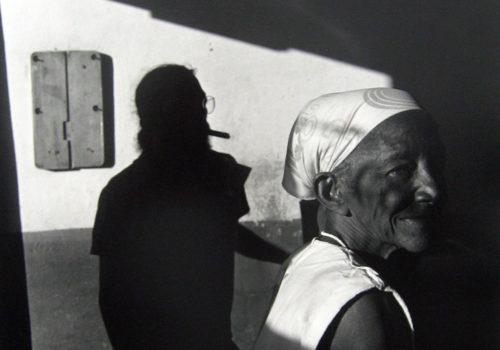In spite of depicting interiors and exteriors or including fragments from a nature debilitated by human actions, in spite of reproducing distant and distinct locations in Europe’s political and cultural geography, in spite of revealing bodies that are different from each other (though all of them are in transit between a world of shadows and a field of silences), this set of twenty photographs by Rodrigo Amado defines an urban itinerary that might be read by our imaginations as cohesive. Besides that, Rodrigo Amado explores strategies for the immediate (visual) fixation of his subject and for its (narrative/musical) sequential development – we may get a better grasp of these images’ meanings if we know that Herberto Helder’s book Os Passos em Volta “the steps around”was used by the photographer as both the starting-point and the destination of his inner journey.
Based on the emotional intensification each image generates (and which is transferred from image to image), the series’ unity emerges not from some illusory unity of place, but from a narrative subtext that is up to us to decipher. Tension, however, is immediate and constant here, and does not need to accumulate image by image; it is a weight that makes itself felt right from the first photograph, in a territory that wavers between the gaze and the skin. The process transfers the representation of uncomfortable places to inside one’s own body. There, where the gaze thinks, we find ourselves taken by a sudden melancholy. There, we can identify ourselves with each corner of these cities. There, we can finally ask ourselves: what can we lose of something that was never ours?
The answer to that question possesses two times: one that is short and dense (the time of each photograph) and another that is long (the time of the full series/book). From image to image, a veil of malaise (rooted on the spleen of the 1800s) is woven, probably reflecting a contemporary collective condition but mostly taking the form of individual loss. The fact that this photographer is also a musician explains our impression of a sad melody all through the representational space, inspiring us to read these images as a temporal sequence of musical notes – which, in turn, reinforces their fictional potential and narrative quality.
João Pinharanda
Rodrigo Amado was born in Lisbon, in 1964. He got his first camera, a Kodak Instamatic, at the age of 18, and developed a strong fascination for photography. During the 1980s, he attended a photography initiation course at Lisbon’s ARCO art school, and spent several years taking pictures of his family, friends and journeys. In September 2001 he founded, together with Pedro Costa and Carlos Costa, Clean Feed, a presently world-renowned music label that specialises in publishing contemporary jazz projects. The label led him to intensify his photographic work, taking pictures for scores of promotional posters and covers for CDs by Paul Dunmall, Bernardo Sassetti or Carlos Barreto, among other artists. Many of his photos were also printed by newspapers, such as Público, Expresso or Diário de Notícias. Using a Nikon FM2, he carried out, in 2002, what can be considered his first photographic project: the recording (never publicly shown), in 35mm slides, of a 45-day journey between San Francisco and New Orleans, with stops at Los Angeles, San Diego, Baja California (Mexico), Santa Fe, Amarillo and Memphis. In 2006, while attending a Kameraphoto portfolio workshop, he met António Júlio Duarte, and the two began a long creative collaboration, which continues today and has led to his first solo exhibition: Close, Closer. One of the leading figures of Portuguese avant-garde jazz, Amado explores a strong connection between music and photography, which becomes particularly significant in such recordings as Surface, dedicated to Stephen Shore, or Searching for Adam, whose concert presentations at the Culturgest grand auditorium and Casa da Música have included the projection of images from the photographic series with the same title. Amado is currently preparing his second photography book: East Coasting or 86 Lost Classics. He also writes jazz reviews for the Público newspaper.
Rodrigo Amado – Un certain malaise
From November 30th 2012 to February 10th 2013
Museu da Electricidade
Av, Brasilia
Central Tejo, Lisboa
Portugal

